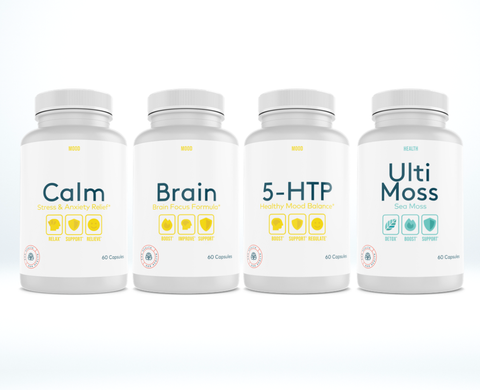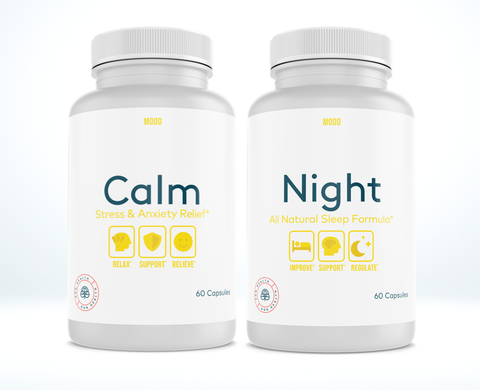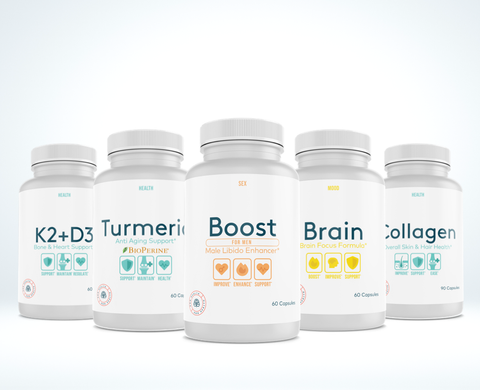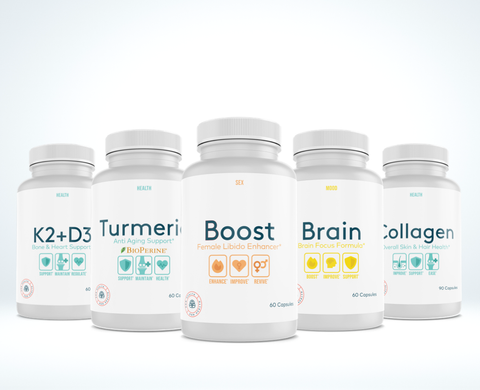How can you tell if you have brain fog?
Jennifer Friedman was looking forward to her date: she met someone at the gym, after many months of staying home, alone with her dog, and couldn't be more excited. The day was Saturday and it was nearly 6:00 pm - she had to leave in a few minutes. B
Before leaving her home in Miami Beach, she checked Google maps to locate the restaurant and sent the address to her phone.
Then, she walked down the stairs, opened the front door, unlocked her car and started driving.
Instead of going there, I went somewhere else. Sitting at the table for half of an hour, I wondered where her date was. My brain fog was really bad.”
It was not just a one-time thing. Jennifer suffered from frequent episodes of memory loss She'd often forget to make dinner, couldn't find the right words to describe things and was always late for school pickup. "I've never had any difficulties with this kind of thing before." “I was having trouble thinking clearly.”
Jennifer is one of the millions of Americans reporting a severe dent in cognitive functioning every year.
Brain fog isn't a medical condition per se, but it can be caused by various factors. It’s an umbrella term used for various conditions that can affect your thinking abilities. It might be hard for you to understand or express yourself clearly.
A person who has brain fog may feel less mentally sharp than normal. You might feel numb and tired, and daily activities may seem harder than usual.
Some examples of things people might do when they're suffering from brain fog include:
- Forgetting about a task they had been working on
- Taking too long to complete simple tasks
- Feeling often distracted
- Feeling exhausted when working

Brain fog may be linked to anxiety
Anxiety and brain fog are both common mental health concerns. Anxiety often leads to brain fog because of the way our brains work. When we feel anxious, our bodies release chemicals called neurotransmitters into our bloodstream. These neurotransmitters help us process information and make decisions. Some of these neurotransmitters affect how well we think, while others affect how alert we feel.
When we're feeling anxious, the neurotransmitters that affect our thoughts and feelings tend to increase. This makes it harder for us to concentrate and remember things. We might even start to forget what day it is or where we left our keys. In addition, we might lose track of time and become confused. Our brain fog becomes worse when we're under pressure or stressed out.
Because brain fog affects our ability to focus, many people don't realize that they are experiencing it. They might just assume that their memory problems are due to old age or lack of sleep. But there are several possible reasons for brain fog, including mental illnesses such as depression.
Brain fog may be linked to pregnancy
The number one thing you don't want to do while pregnant is forget something important. But chances are, you might. A study published in the journal Neurology found that many women experience memory loss during pregnancy. Researchers looked at data from over 3,300 women who had given birth between 2006 and 2010. They found that about 20% of women experienced some type of memory problem during pregnancy. About half of those problems lasted longer than six months. Some women reported experiencing severe memory problems lasting up to three years.
Carrying a baby can change the way your brain works. During pregnancy, hormones flood your system to help prepare your baby for life outside the womb. These same hormones can cause changes in how the brain functions. While there isn't much research into what causes memory loss during pregnancy, experts think the hormone progesterone could play a role. Progesterone helps regulate mood and sleep patterns. When levels of progesterone drop too low, symptoms such as anxiety, depression and insomnia can occur.
Brain fog may be linked to menopause
The average woman goes through menopause between the ages of 45 and 55. But some women don't experience symptoms until later in life. Menopause typically begins one to three years after a woman stops having periods. Symptoms vary depending on how long ago you stopped menstruating.
Women may find it harder to focus or concentrate on tasks like reading and writing during perimenopause because of what's happening inside their brains. In fact, researchers say that while estrogen levels are dropping, testosterone levels are rising. This combination leads to decreased cognitive function.
Hormones play a big role in memory retention, according to Dr Stephen E. Hyman, director of Harvard Medical School's Memory Disorders Program. "When we're young, our hormones are very active," he says. "They keep us alert, focused and interested."
But as we age, our hormone levels fluctuate less frequently. And when they do, they tend to go up rather than down. As a result, many people start experiencing forgetfulness and trouble focusing. Some women report feeling irritable, moody or anxious. Others feel tired or depressed.
Medications such as antidepressants can help ease those symptoms. Other options include hormone replacement therapy and bioidentical hormone therapy. Both treatments work similarly, though they differ slightly in dosage.
Brain fog may be linked to Chronic Fatigue Syndrome (CFS)
Chronic fatigue syndrome (CFS), also called myalgic encephalomyelitis (ME), is a chronic illness characterized by persistent unexplained fatigue lasting longer than 4 weeks.
People with CFS often experience symptoms such as muscle pain, sleep problems, cognitive difficulties, headaches, sore throat, tender lymph nodes, and impaired memory and concentration. Many people with CFS report that their health declines over time, leading to loss of energy and stamina, and making it difficult to work, study, or participate in family activities.
There is no known cause for CFS. However, most experts believe that CFS is caused by multiple factors including psychological stressors, viral infections, immune system dysfunction, vitamin deficiencies, and environmental toxins. Symptoms typically begin gradually and worsen over time.
Some people have periods of remission during which symptoms improve, while others continue to suffer even though symptoms do not always occur. In some cases, there is a sudden onset of severe symptoms without a previous period of milder symptoms.
The exact number of people affected by CFS is unknown because many people with CFS never seek medical attention. Estimates range from approximately 2 million to 5 million Americans. Most doctors don't recognize CFS as a distinct disease, and few insurance companies cover treatment costs.
Brain fog may be linked to a lack of sleep
The average person sleeps for only 6 hours a night and has little time to exercise. This is the result of poor lifestyle choices and it can cause severe brain fog.
Sleep deprivation causes also other serious health problems such as:
- Increased risk of heart disease
- Weight gain
- Depression
- Memory loss
- Reduced immune system function
- Diabetes
- High blood pressure
- Stroke
- Alzheimer’s Disease
- Dementia
If you want to get rid of your brain fog, you need to make sure you get enough restful sleep every day. You should try to get at least 7 hours of sleep each night. If you find yourself waking up several times throughout the night, then you probably need more sleep.
You also need to eat right, throwing away most of your processed food and replacing them with fresh fruits, vegetables and properly cooked meals.
How can you beat brain fog?
Brain Fog is a condition that affects the mind and memory. It’s caused by stress, anxiety or depression. The symptoms of brain fog include:
- Difficulty concentrating
- Memory loss
- Confusion
- Fatigue
- Headaches
- Depression
- Lack of motivation

The good news is that there are ways to treat this condition. Here are some tips on how to beat brain fog:
1) Get plenty of sleep. Healthy adults sleep more than 7 hours per day. This allows the whole body o rejuvenate and wake up refreshed, energetic and feeling active.
2) Eat healthy foods. Processed, junk food from your local fast food restaurant offers nothing to your diet (it actually does - adds lots of bad trans fat to your body weight). If you are suffering from brain fog, do not add more burden to it - make an effort to replace your diet with fresh fruits, vegetables and healthy cooking meals.
3) Exercise regularly. A nice 10-minute walk can clear your head and will help it stimulate more with the visual images you will see. Take care of your body, and the rest will follow said someone great :-)
4) Reduce stress levels. Stress is one of the main reasons why we experience brain fog. Try to reduce your stress levels by doing things like meditating, taking deep breaths, exercising, listening to music, reading books, playing games, etc.
5) Take supplements. Regen Health has actually a product that can help you clear your head, focus more and get back your memory, in less than 20 minutes. Check it out here.
8) Practice yoga if you can/want. Yoga helps to calm down the nervous system, relaxes muscles and improves circulation. It's a great way to relieve stress and improve your mood.
9) Do breathing exercises. Deep breathing helps to oxygenate the blood and remove toxins from the body.
10) Avoid caffeine. Caffeine stimulates the central nervous system and makes us feel alert. However, when taken too much, it can lead to insomnia, headaches, irritability, jitteriness, palpitations, tremors, and even seizures.
11) Drink water. Water keeps our bodies hydrated and cleanses the body of impurities. Drinking water before bedtime will keep you awake longer as well as help you fall asleep faster.
12) Use essential oils. Essential oils are natural substances found in plants. They have been used for thousands of years to promote health and wellness. Some of these oils include lavender, chamomile, rosemary, eucalyptus
Conclusion
Brain fog affects millions of people every year, with symptoms like memory loss, lack of concentration, lack of focus and much more.
If you think you have any of the above, take a quiz to find out if you experience any symptoms of a lack of mental clarity and what you can do about it.









